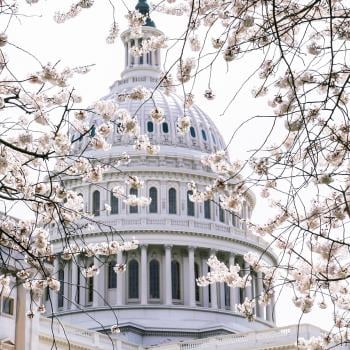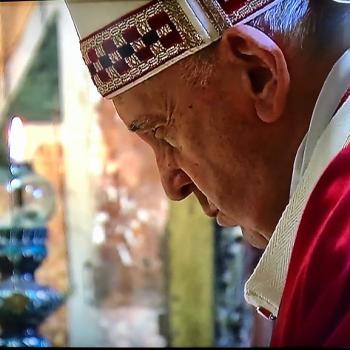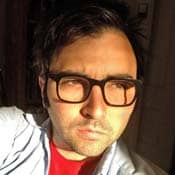Editor's Note: This article is part of the symposium, "What Is Progressive Christianity?" presented by the newly launched Patheos Progressive Christian Portal and in partnership with the Wild Goose Festival (June 23-26). Like us on Facebook to receive today's best commentary on Progressive Christianity.
Back in April, here at Patheos, I began a column by stating, "I am not an evangelical."
Okay, you're thinking. So what.
If you've been around here for a while you know that, up until today, my column lived in the Evangelical Portal, right there between J.E. Dyer and David French.
Even before "coming out," as it were, a few curious people who had read enough to suspect me, inquired as to what I was doing there. And I'm not the only one they asked. Tim Dalrymple, editor of the Evangelical Portal and the person who recruited me to Patheos, explained that he told inquisitive readers that I (along with my friend David Sessions) was over at Evangelical mostly because there wasn't a better place for me.
Yet, now, here I am. Progressive Christian. The air smells fresh here.
As a person who all but majored in introspection, I can't help but pause to consider what this digital migration might mean. In some ways, it is just a cyber embodiment of a shift I've been in the process of making since the early aughts—since I nearly quit Christianity, then rediscovered the Gospels, aligned myself with Christian pacifism, and poured myself into the study of the religion I grew up in.
This all happened in the era of Facebook, so it feels completely appropriate that my faith journey can be mapped in 1s and 0s. Still, this is the most literal embodiment of the shift to date. I was already liberal by the time I signed up for my Facebook account, so I never had to change my political views, and, as for religion, I chose to categorize myself, simply, as Christian.
But, my migration is far overshadowed by a much greater transition here at Patheos. This wonderful, new Progressive portal has fallen, like Dorothy's house, squarely on the head of the old Mainline Protestant portal. I won't dare speculate as to whose two feet in striped socks are poking out from beneath.
This change, I think, will come to seem extremely telling over time. We've heard endlessly about the decline of the mainlines. Everyone has a different theory, but, most often, the chorus points to their liberalism, to their acquiescence to "the times" as their undoing. But that theory, and any theory that tries to explain how leaning left leads, eventually, to falling out of Christianity, fails to take into account the leftward lean many of us experienced that led us out of evangelicalism. Embracing progressive views may be antithetical to conservative, evangelical Christianity, but not to Christianity itself.
Mainline denominations needn't go away, nor be replaced, so much as be invigorated by a fresh crop of post-evangelicals like myself and many of my friends who found that the Christianity we grew up in had strayed too far from the teachings of Jesus and the early church. It had become what the brilliant Soong-Chan Rah calls "Americanized Christianity" in his excellent book The Next Evangelicalism.
But even that evangelicalism is changing. I'd like to think that those of us who are moving, physically and digitally, to progressivism are leaving in our wake a challenge to our friends who choose to remain evangelical. I believe that in this shuffle, this denominational dance, we are actually living out God's purpose for his church on earth.
I used to resent denominations. When I was younger, it was common to hear people lament that the number of denominations was evidence that the church was failing in its mission; our diversity was a mark of weakness. But this is a mistaken view. Rigid structure, black and white laws, and firm convictions can all be good, but they can also constrict growth, enslave people, and close minds. If God wanted us to have the kind of clarity that many of the pastors of my youth claimed to have about what scripture says, he shouldn't have imparted it to us in the written word.





